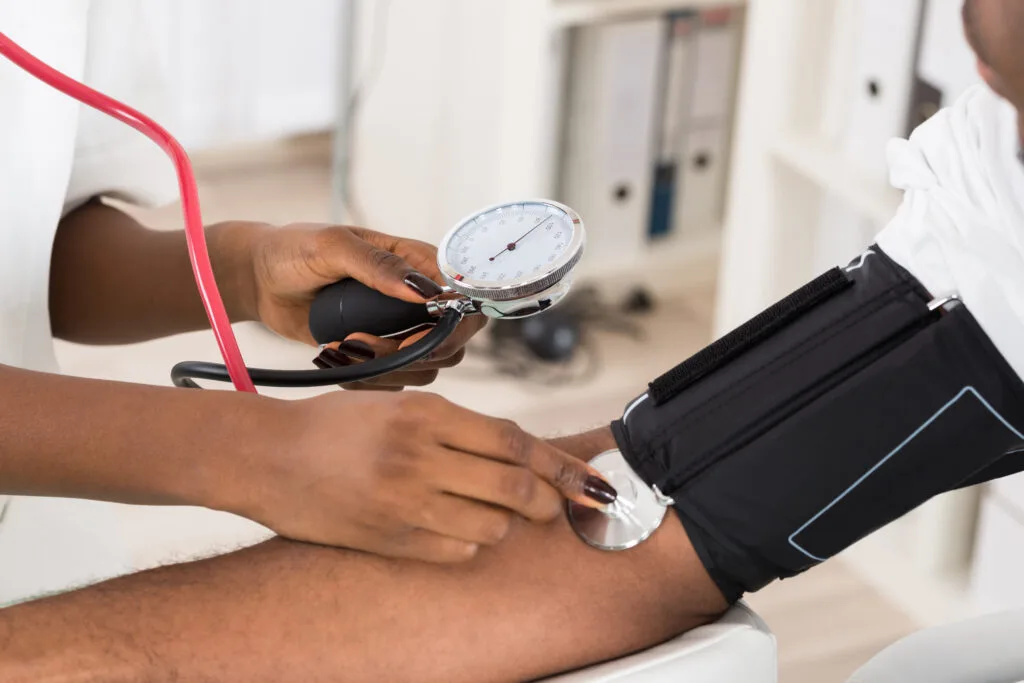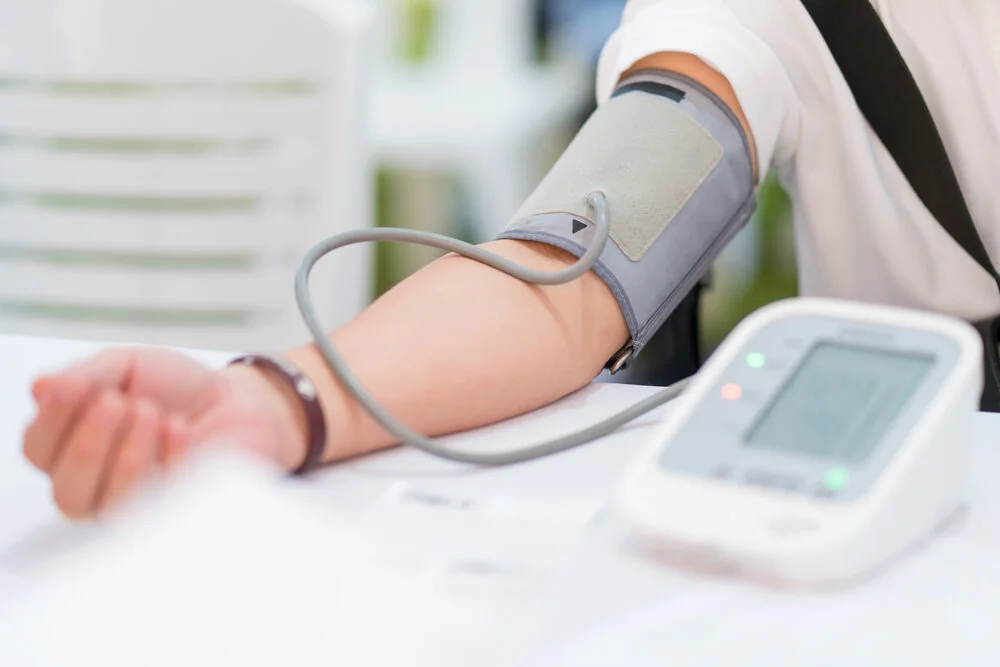Blood Pressure Check in Abu Dhabi
Elyzee Hospital is one of the best medical centers in Abu Dhabi specializing in Blood Pressure Check.

Blood Pressure Check in Abu Dhabi
Measuring blood pressure also referred to as blood pressure check is a process aimed at evaluating the impact of blood on artery walls. This straightforward yet essential examination offers insights into a person’s well being. In this comprehensive guide, we delve into the world of blood pressure checks, highlighting their benefits, identifying suitable candidates, detailing the consultation and preparation process, explaining the procedure itself, discussing post-check considerations, outlining the final results, offering a concluding perspective, and addressing frequently asked questions to provide a comprehensive understanding of this essential aspect of healthcare.
The benefits of this procedure
Regularly checking your blood pressure provides advantages especially when it comes to identifying and managing hypertension ( blood pressure). Monitoring your blood pressure is crucial, for evaluating well being, recognizing risk factors for heart disease and preventing complications, like stroke, heart attacks and kidney issues. By monitoring your blood pressure both individuals and healthcare professionals can make choices regarding lifestyle adjustments and medical treatments to ensure healthy blood pressure levels are maintained.

The best candidate for this procedure
It’s crucial for adults of age groups who have factors that increase the likelihood of hypertension or cardiovascular disease to make getting their blood pressure checked a priority. Those who have a family history of blood pressure individuals with obesity or those who smoke are at risk. Should regularly monitor their blood pressure. Moreover individuals with existing conditions, like hypertension, diabetes or other chronic illnesses should incorporate blood pressure checks into their healthcare management routine.
Consultation with a Doctor and Preparation for the Procedure
Usually there’s no need to schedule an appointment with a doctor for a blood pressure check. It’s usually done during visits. However if someone wants guidance on monitoring their blood pressure at home they can consult their healthcare provider. To prepare for a blood pressure check its recommended to wear clothing since the measurement is typically taken on the arm. It’s also advisable to avoid caffeine, tobacco and any strenuous physical activity for 30 minutes, before the test.
What's Happening During the Procedure
When checking blood pressure healthcare professionals or nurses use a device called a sphygmomanometer. This device consists of an inflatable cuff, a pressure gauge, and a stethoscope or electronic sensor. The cuff is wrapped around the upper arm, and the healthcare provider inflates it to temporarily stop blood flow in the arm’s main artery. They then slowly release the air while listening for the sound of blood flow with the stethoscope or relying on digital readings from the sensor. Blood pressure is measured using two numbers; pressure, which’s the pressure, during heartbeats and diastolic pressure which is the pressure, between heartbeats.
After the Procedure and Recovery
There is no need to worry about any recovery time when getting your blood pressure checked. It’s a painless procedure so you can go back to your activities right away. However it’s important to talk to your healthcare provider about the results. They will interpret the measurements. Give you advice on how to maintain or improve your blood pressure if needed.
Final Result
When measuring your blood pressure you will come across two numbers, such, as “120/80 mm Hg,” which represent the pressure reading. A typical range, for blood pressure is usually, between 90/60 mm and 120/80 mm Hg. If your readings are not within this range it could suggest that you have either blood pressure (hypertension) or low blood pressure (hypotension). It’s important that your healthcare provider carefully evaluates these findings and provides advice, on making changes, to your lifestyle or considering treatments based on these measurements.
Conclusion
Regular blood pressure checks are a fundamental component of preventive healthcare and cardiovascular disease management. Monitoring blood pressure levels empowers individuals to take control of their heart health and make informed decisions about lifestyle modifications and medical treatment. Incorporating routine blood pressure checks into healthcare practices can significantly contribute to a longer, healthier life.

FAQ
How often blood pressure should be checked depends on risk factors and medical history. Typically adults should have their blood pressure monitored, at once every two years if it falls within the range.
Absolutely you can find home blood pressure monitors that are specifically designed for monitoring. These monitors are particularly useful, for individuals who have hypertension or other cardiovascular risk factors. It’s crucial to follow the instructions provided by the manufacturer and have a discussion about home monitoring with your healthcare provider.
Making lifestyle changes can significantly contribute to preventing or managing hypertension. Some of these modifications involve adopting a balanced diet, regularly engaging in activity, maintaining a healthy weight, reducing the intake of sodium effectively managing stress levels, limiting alcohol consumption and avoiding smoking. These adjustments have proven to be effective in maintaining blood pressure levels.
Vaginal Filler & Rejuvenation can benefit women of various ages, particularly those experiencing intimate wellness concerns related to childbirth, aging, or hormonal changes. Consultation with a healthcare provider will determine the most appropriate treatment plan based on individual needs.
Make An Appointment

